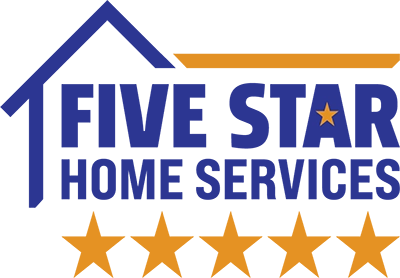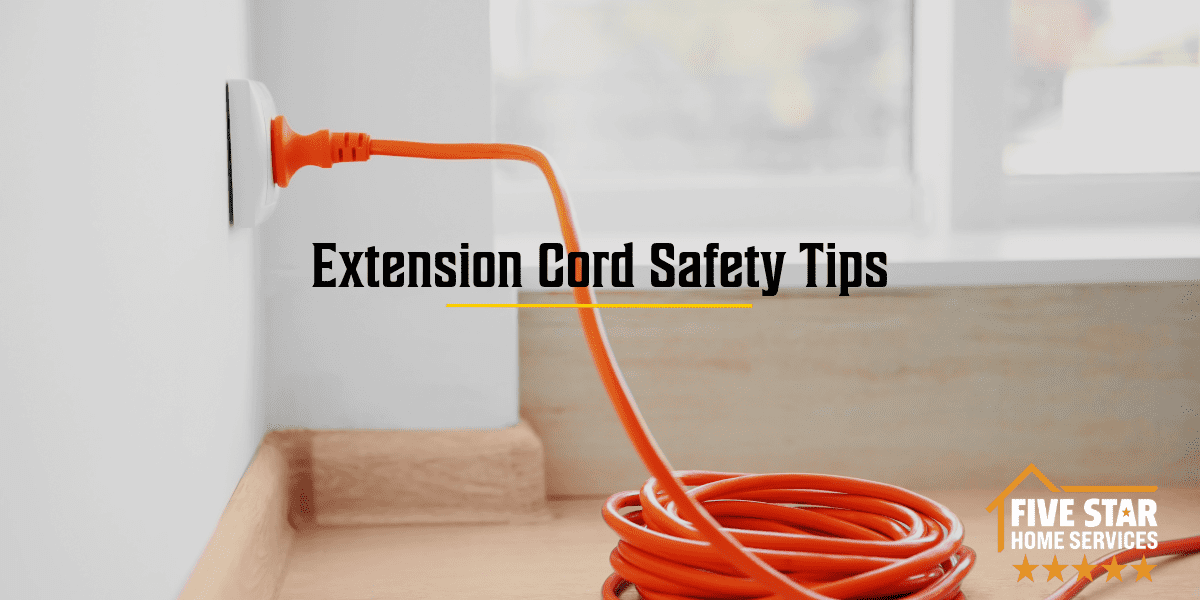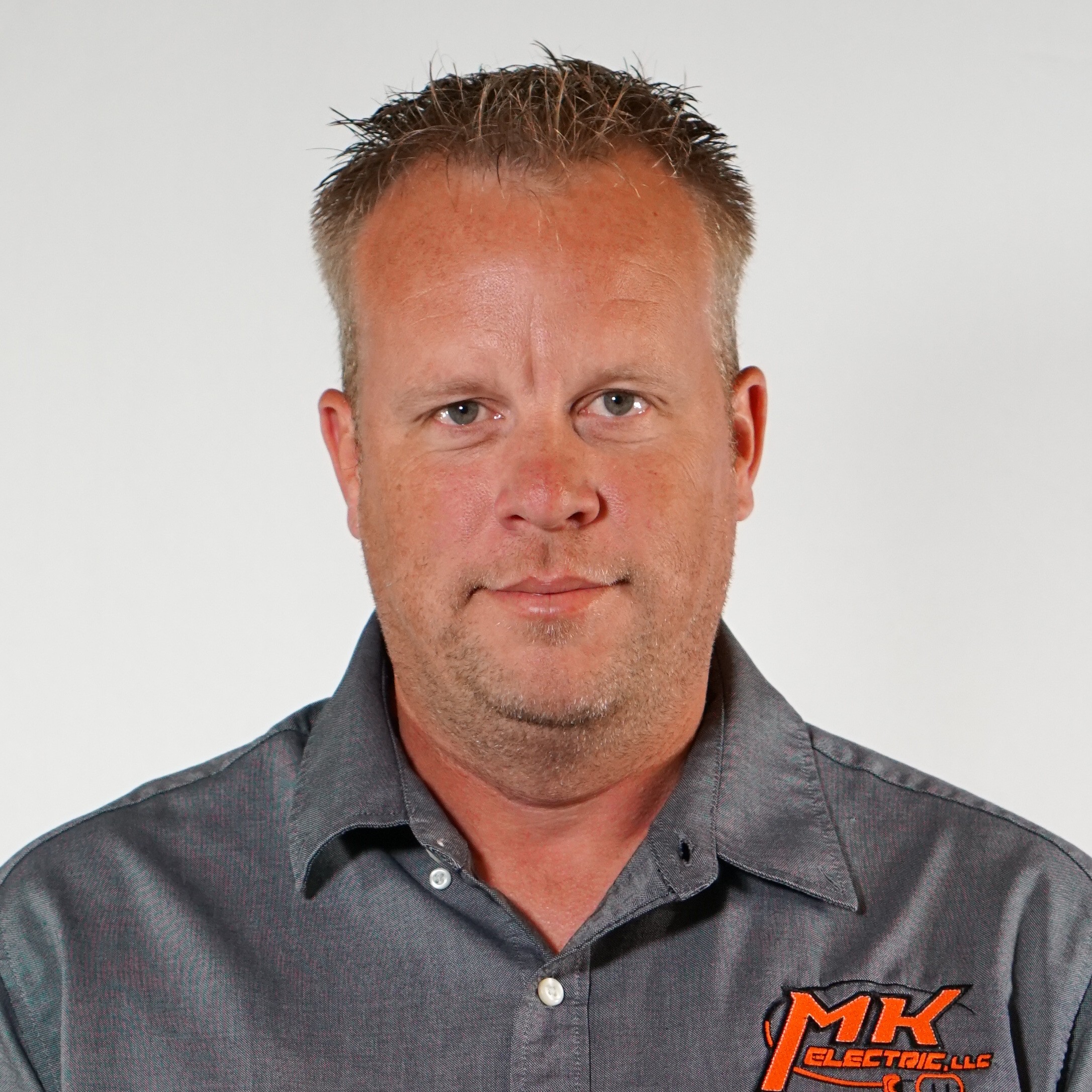What You Should Know About Extension Cord Safety
Extension cord safety is paramount, especially during the holidays. Whether we use them indoors for our appliances and electronics or outdoors for Christmas lighting and landscaping decorations — extension cords are very useful.
Nevertheless, we always need to use caution with extension cords, especially outdoors. There are dangers and certain pitfalls we need to avoid. In the following, your friends at Five Star Home Services will address and inform those who are gearing up to use extension cords throughout the season.
Outdoor Extension Cord Usage
Outdoor extension cords are excellent for outdoor lighting, outdoor entertainment centers and any outside cooking needs. Nevertheless, they can also become the most dangerous types of extension cords if they end up getting damaged. Because outdoor extension cords are exposed to extreme weather conditions and things like heat, rain, and snow — you need to keep an eye on them more than others. Frequent inspection of not only outdoor extension cords, but all extension cords is a must. It would help if you did this to ensure that no part of the cord is damaged. You don’t want them creating the risk of electric shock or fire.
Additionally, an extension cord cover can further protect any extension cords outdoors from becoming a safety hazard. You should also minimize the number of extension cord to extension cord connections you make outdoors. However, if it’s necessary to connect multiple extension cords together, we encourage you to invest in one of the handy extension cord covers we mentioned above. These are some of the best ways to protect the areas where the two cords meet.
Additionally, while some indoor cords are suitable for outdoor usage, you must guarantee their safety. The exterior of the cord, often called the jacket, is what we look at to determine the intended use of an extension cord. Jackets are labeled as following:
- “S” — indicates general usage.
- “W” — suitable for outdoors.
- “J” — 300-volt insulation (without a “J” indicates that the cord has 600-volt insulation).
- “P” — is for parallel wiring, used mostly indoors.
- “O” — indicates an oil-resistant cord.
- “T” — indicates the cord jacket is made from vinyl thermoplastic.
- “E” — jacket is made from thermoplastic elastomer rubber.
While many of these indications are unnecessary to use to a certain extent — they will give you a good idea of what you may be able to use indoors and outdoors.
Indoor Extension Cord Safety Hazards
Although your outdoor extension cords may be exposed to extreme elements, your indoor extension cords can pose just as big of a threat. They are the ones that are closest to your valuable belongings and your family. If a fire or electrical shock should occur here, it would be very costly.
More often than not, indoor extension cords get used for extended periods. In fact, they’re used for longer periods of time than they should be used. Because of this, they can get damaged more easily than outdoor extension cords depending on the environment.
Consider all the times you’ve placed a rug over an extension cord or pinched it between a wall and furniture — perhaps one of your beloved pets gnawed at the cord. From now on, whatever electricity is heading towards that particular damaged cord is compromised. Eventually, it can lead to short circuits, among other issues.
Extension Cord Tips To Keep in Mind
Extension cords aren’t toys! You should never try to alter an extension cord’s prongs or sockets! Three-pronged cords should remain plugged into only sockets meant for three-pronged cords. The third prong provides an electrical circuit path to the ground wire. The importance of this cannot be overstated!
Additionally, our professionals at Five Star Home Services listed several other extension cord tips homeowners and business owners should keep in mind: They include, as follows:
- Check the Wattage: Before using an extension cord, verify its wattage rating to ensure it can handle the power needs of the appliances you plan to use.
- Avoid Overloading: Avoid plugging too many appliances into a single extension cord, as it can cause overheating and fire.
- Keep Away From Wet Areas: Water and electricity are a dangerous combination. Keep extension cords away from sinks, bathtubs, and other water sources.
- Inspect Regularly: Check your cords regularly for damage. Replace the cord immediately if you notice any fraying, exposed wire, or broken plugs.
- Use for Temporary Basis: Extension cords should not be used as a permanent solution. If you rely on extension cords regularly, it may be time to consider adding more outlets to your home.
- Proper Storage: When not in use, loop the cord loosely and store it in a dry area to avoid damage.
- Buy From Reputed Brands: Always invest in extension cords from reputed brands that meet safety standards.
Remember, prioritizing safety when using extension cords can prevent potential hazards and extend the lifespan of your devices and the cords themselves.
Need additional help? Call Five Star Home Services today!
For more electrical tips or to talk to a local electrician, your friendly neighborhood electricians at Five Star Home Services are always standing by! Keep that in mind!
We proudly serve all the residential electrical needs of customers throughout the Greater Dayton, Greater Cincinnati, and Greater Columbus areas!
Call us today at (833) 405-8009.


